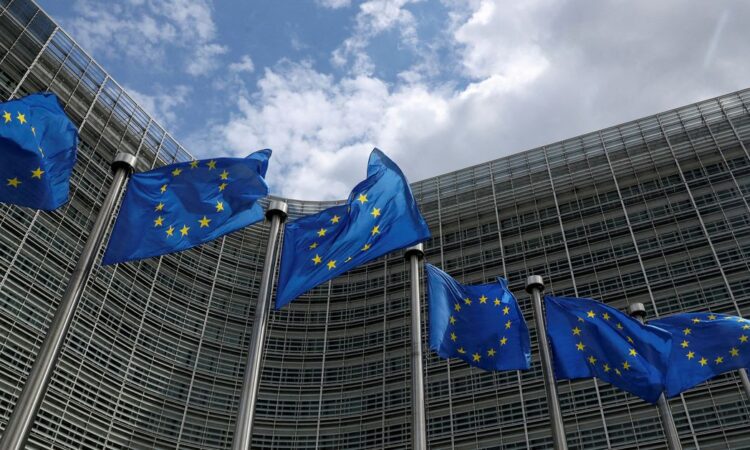
LONDON, April 5 (Reuters) – Germany has told the European Union not to tamper with rules that allow banks which are part of a network offering financial help in a crisis to benefit from lower capital and liquidity requirements, a letter seen by Reuters showed.
The EU’s executive European Commission is due on April 18 to set out draft reforms to rules for handling stricken banks.
It comes at a time of heightened sensitivity in the sector following UBS’ shotgun merger with Credit Suisse, and collapses of several U.S. banks, including Silicon Valley Bank.
German Finance Minister Christian Lindner said in a letter to the European Commission and the Eurogroup, that the EU executive should respect the “clear agreement” made in June last year to preserve the framework for so-called Institutional Protection Schemes.
“From what I have now learned… this will not be the case,” Lindner said.
The European Commission had no immediate comment.
The schemes link banks in a national network, allowing a struggling lender to get financial aid from the scheme’s other members. They form part of a country’s protections for bank depositors.
Participating banks pay into the network, and benefit from reductions in some capital and liquidity requirements. Such schemes have been set up in Germany, Austria, Italy, Spain and Poland.
The current plans would introduce a “number of new and significant restrictions” on IPS schemes by treating them like deposit guarantee schemes, Lindner said.
Other elements in the draft plans, such as the very broad scope of the rules would lead to “very difficult negotiations”, Lindner said.
Reporting by Huw Jones; Editing by Jan Harvey, Alexandra Hudson
Our Standards: The Thomson Reuters Trust Principles.





